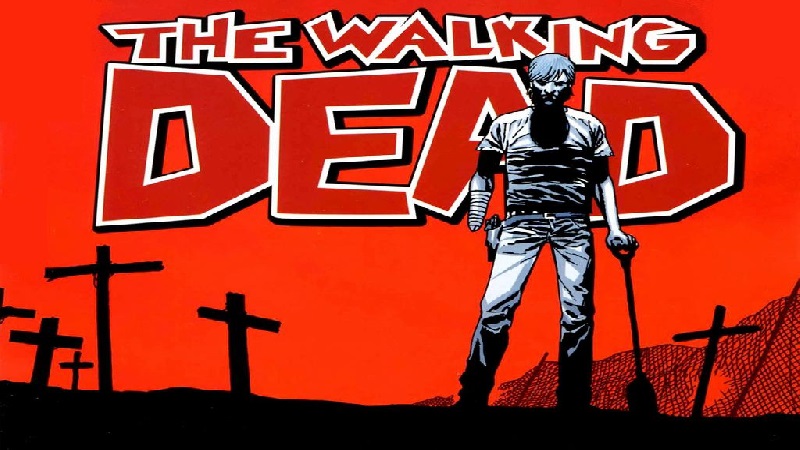
In partnership with the blog ScreenCraft, we’re publishing “First Draft,” a series on everything to do with screenwriting.
Hollywood development is broken, caught in a loop of repetitive and unending rhetoric designed to push aside each and every screenplay that comes through the inbox.
When the one-two punch of the 2007-2008 economic disaster and the Writers Guild of America strike occurred, the studio system was thrust into a non-risk spiral. Term deals—studio deals with producers and writers—were dropped in fear of the financial disaster and the looming reverberations of the strike.
The world of big spec sales and paid options collapsed, and what rose from the ashes was an industry afraid and unable to take risks—where Intellectual Property (IP) became the sole driving force of Hollywood development.
“Novels, video games, comics, graphic novels, public domain.” That is what novice screenwriters are told that they need to adapt time and time again. It’s become the go-to statement for managers, agents and development executives, despite the fact that IP-driven content often proves to not be the sure thing that studios and distributors hoped for.
So when screenwriters send in their original screenplays to the contacts and connections that they’ve made, the biggest secret is that Hollywood is not looking for reasons to say yes. They’re looking for reasons to say no.
While that may seem harsh and wrong, Hollywood has to do that. Development offices, agencies, production companies and management companies are swimming in a very over-populated and dense ocean of scripts.
There has to be a filtration system that weeds through the thousands of scripts that float in and out of offices and inboxes per year. Most execs are looking for original material, that one diamond in the rough. Unfortunately, that rough is thick and extensive.
But the system can be fixed. All hope is not lost. Here is where we come full circle. Here is where screenwriters as a collective can change the system.
Enumerated below are seven ways that screenwriters can help in the effort to fix this broken system. It’s not an easy repair job and screenwriters can’t do it alone, but it’s a necessary fix. Screenwriters have to do their part for the good of cinema and the dreams of screenwriters worldwide.
1. Don’t Buy Into the Rhetoric
“You should maybe consider turning this into a graphic novel first.”
The curse, in relation to screenwriters, of The Walking Dead and any other graphic novel that was adapted successfully (surprisingly few, actually) is that Hollywood uses the trend as an excuse to push scripts away.

If it’s not based on a graphic novel, or outstanding IP, it’s easy for them to say no. They have an excuse to not take the risk.
“We want the next Fast and Furious.”
Another go-to statement is to list the big money-making franchises and tell everyone that they’re looking for the next one. This mindset and rhetoric forces screenwriters to feel the need to bow down and adhere to such statements, which only leads to what the industry is saturated with right now: more of the same.
Studios fall victim to this rhetoric time and time again. Look no further than the failed Point Break remake, which tried to emulate Fast and Furious (which is ironic, because the first film in that franchise was actually a near rip-off of the original Point Break).
Or the Aaron Paul-led action bomb Need for Speed, which was clearly a carbon copy of Fast and Furious, albeit with a few pieces of the puzzle slightly altered and switched around.

As a screenwriter during this current climate in the industry, having scripts like that makes you instantly forgettable, because the studios themselves are already employing established writers to write the next [insert successful film, show, or franchise here].
The reality is that successful films and franchises are lightning in a bottle. They are a result of perfect casting, perfect concepts, perfect writing, perfect producer and director attachments, and perfect timing in the market. It’s not enough to simply take those elements and mix and match different character types, different settings or different worlds and place them into the same structure and the same marketing plan.
Both Hollywood and screenwriters need to end this loop. You, the screenwriter, can take the first step by not buying into the rhetoric, despite what you read about or hear in seminars, writer conferences, panels, Q&As, etc.
But if you’re not willing to play the Hollywood game, how can you break through?
2. Give Them What They Didn’t Know They Wanted
Easier said than done, but the truth about Hollywood falls in line with what William Goldman famously said: “Nobody knows anything.”
It’s so true. No studio or executive could have predicted that the worldwide audience needed or wanted a film like Star Wars back in the day when science-fiction—science-fantasy in the case of Star Wars—was a cinematic wasteland.
Nobody could have predicted that an R-Rated, uber-violent and “inappropriate for children” superhero movie that constantly broke the fourth wall with the audience—Deadpool—would go on to garner $782 million worldwide. Yes, it had IP, but Hollywood had no clue that a film that went against the superhero movie mold would succeed as well as it did.

Screenwriters are making the mistake of buying into the rhetoric and writing what they think they know the producers want instead of conjuring compelling concepts that go against the grain, therefore giving Hollywood something that stands out among the rest.
The 2015 Blacklist script Bubbles is a prime example of that. This was a concept so ludicrous—a story told through the eyes of Michael Jackson’s chimp Bubbles—that no one could have predicted that the industry would fall in love with it. It’s a testament to the fact that Hollywood loves to read things that are different and original. They crave it amidst the endless copycat scripts out there. It doesn’t mean that the script will actually get made, but it can be the difference-maker in you getting representation and assignments.
You need to conjure those original concepts and characters. You need to conceive those original ideas, deliveries and structures. Don’t just write the next action ensemble flick, the next ghost horror piece, the next Wizard of Oz, Peter Pan or whatever other public domain variation of that is. Hollywood is flooded with those and more.
Instead, come up with something truly original. Find a story in history that hasn’t been told before. Handle a genre like no one has. Blend genres and concepts in a way that no one would have thought to try. Give Hollywood what they didn’t know they wanted—and needed.
3. Don’t Believe in the Myth of “The One”
If you’re going to embrace the “give them what they didn’t know they wanted” mantra, you need to understand that the more of such material you have, the better the odds that those scripts, and you, are discovered.
One script is never enough. And when you’re pushing the envelope, you need to prove to them that you can and have done it over and over.
It’s not just about what we’ve discussed before: having three to five scripts in your deck. It’s about having three to five “X-factor” scripts that push that envelope, that provide a spark that no other scripts in the market are currently offering.
Take a year or two to develop and write them. It will be much more fruitful than spending six months to a year writing “the one” and then marketing it for months on end. Instead, venture into the tunnel and come out the other end with three to five game-changers that have a better shot at taking on the industry like a storm.
Yes, one script might be the breakthrough, but many will be what solidifies you as a true force to be reckoned with.
And when the industry is saturated not with clones of what has come before, but with original game-changers, that is when the change will begin to reverberate throughout Hollywood.
4. Pay Attention to the Chatter
Stop and just listen for a bit. What have we been hearing in social media, movie reviews, and headlines? Do you hear it?
- Lack of diversity in roles
- Lack of strong lead roles for women
- Over-abundance of predictable and formulaic movies
These are just three of the many discussions going on in pop culture and society today. Listen to that chatter. As it grows and grows, Hollywood eventually pays attention.
Develop and write that script that has a diverse cast—that has amazing leading roles for African-American, Asian or Hispanic actors. Write some strong and powerful lead roles that actresses can sink their teeth into. Write something daring, dangerous and unpredictable.
Chances are Hollywood is wanting those types of things, but isn’t willing to risk the time and effort to develop them due to the pressure of shareholders and accountants. Imagine if you were that lightning-in-a-bottle screenwriter that brought that script into the limelight at the right time and with the right person.
5. Persevere
The hardest truth that all screenwriters need to learn is that it takes time. There are no overnight successes. Those are conjured by the media to sell a headline. The average successful screenwriter that is getting assignments and selling projects likely had to endure rejection and screenwriting unemployment for at least a decade before he or she finally broke through.
And even then (and I speak from experience, my friends), there are no guarantees. You will be a hot commodity one year with multiple meetings, only to see that buzz fizzle and go flat for the next year. You may get that assignment and see it go into production, only for it to bomb and leave you on the curbside again, waiting for the next.
Perseverance is key to a successful screenwriting career. If you’re not willing to keep getting back up after you’ve been knocked down over and over, the dream will never come true.
6. Be Honest With Yourself and Your Choices
We’ve been talking about originality and pushing the envelope with your scripts. The harsh truth is that nine out of 10 of you reading this right now think that your scripts fall into that originality category, when they actually don’t.
Most scripts that come through contests, through consulting services, and especially through Hollywood development, management, agency and production offices have proven that screenwriters have an extreme disconnect with what is truly original and game-changing. They are too in love with their own work to see what it truly is: their own version of what has already been produced.
Is your script really that original? Are your characters really that game-changing?
There are no real answers to the question of “How do I find those original and game-changing concepts?” The people who eventually do are already writing them as we speak, because they know the industry, they know what’s come before, and—perhaps here is the secret—they pay attention to that voice inside telling them, “I haven’t seen something like this in a movie theater before.”
7. Know That Original Isn’t Enough
Despite all we’ve discussed above, just having an original concept isn’t enough. Already the industry is likely being bombarded with clones of Bubbles, which goes against all that we’ve mentioned above, but also showcases the mistake that screenwriters may make: creating something weird, different, and wacky for the sole purpose of being weird, different, and wacky.
The script still has to be cinematic. It still has to have compelling characters, compelling story arcs, great pacing and depth.
Don’t be odd just to odd. Don’t be different just to be different. Always, always, always ensure that your concepts and the deliveries have purpose and tell amazing cinematic stories.
You, the screenwriter, can make a difference. But you have to be willing to take the risk. You have to be daring enough to go against the grain. Writing just another wacky comedy, just another explosions-and-mayhem action flick, just another space opera, just another slasher gore fest, or just another franchise clone under a different name isn’t enough. You may believe you’re playing the Hollywood game, thinking like those managers, agents, development executives and producers, but what you’re really doing is making the problem worse. It’s perfectly fine to have those types of scripts that you may love to write in your back pocket as writing samples, but you need to start thinking about how you’re going to break through and do your part as a screenwriter in fixing this broken industry. You need to start thinking about how you’re going to change the game. If you don’t believe you can, then you should find something else to pursue right now.
Hollywood needs you. Give them what they didn’t know they wanted. MM
This post originally appeared on the blog ScreenCraft. ScreenCraft is dedicated to helping screenwriters and filmmakers succeed through educational events, screenwriting competitions and the annual ScreenCraft Screenwriting Fellowship program, connecting screenwriters with agents, managers and Hollywood producers. Follow ScreenCraft on Twitter, Facebook, and YouTube.
